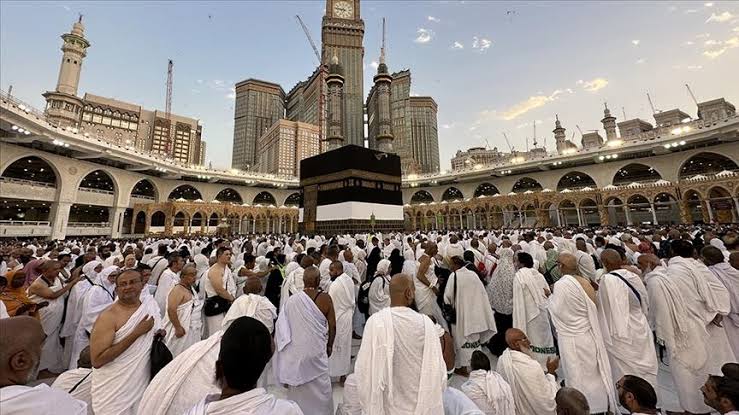Worship
Saudi Arabia arrests 7 Nigerian pilgrims over NUSUK hajj pilgrim cards

The authority of Saudi Arabia’s Kingdom has arrested seven Nigerian pilgrims performing this year’s holy pilgrimage in Makkah for failure to be in possession of NUSUK identity cards.
The seven Nigerian pilgrims from two states were said to have been arrested in front of their hotels on June 5 and 6 over the Nusuk ID cards, otherwise known as hajj permit.
In Saudi Arabia, not having Hajj permits, harbouring or aiding those without it attracts a SR10,000 fine, six months’ imprisonment, deportation and banning from Saudi Arabia for 10 years as penalty.
Names of the arrested pilgrims were not yet made public and it could not be ascertained yet if retrieves have come their way through the intervention of Nigeria’s hajj commission.
Reacting to the development, the National Hajj Commission of Nigeria, NAHCON, re-iterated its appeal on the collection and use of the cards for their Hajj exercise in the Kingdom of Saudi Arabia.
In a circular issued to all the state pilgrims welfare boards, agencies and commissions, as well as licensed Hajj tour operators, the commission disclosed that seven Nigerian pilgrims from two states were arrested in front of their hotels on June 5 and 6 over the Nusuk ID cards.
This activity, NAHCON warned in the circular signed by its Makkah Coordinator, Dr. Aliyu Tanko, on behalf of the chairman, Malam Jalal Arabi, is expected to intensify as the month of Dhul Hijjah begins soon.
The commission requested all State Muslim Pilgrims Welfare Boards and all tour operator companies to intensify awareness to their pilgrims on the mandatory possession of Nusuk ID cards, saying “all pilgrims must collect their cards on arrival in Makkah from the Mutawwif officials.”
It added that after possessing the Nusuk cards, “it is imperative to carry these cards at all times, as they are the recognized means of identifying pilgrims and also having access to key areas during Hajj.”
“Pilgrims with smartphones can download the Nusuk app from Playstore or iTunes stores, use their passport and visa numbers to activate and access digital copies of their Nusuk cards,” the commission advised.
On the penalties, NAHCON warned that “not having Hajj permits, habouring or aiding those without it attracts SR10,000 fine, six months’ imprisonment, deportation and banning from Saudi Arabia for 10 years.”
“We urge all SMPWB’s and tour operators to ensure that their pilgrims adhere strictly to these guidelines to avoid any inconvenience or disruption in their spiritual journey,” the commission stated.
NAHCON had a few days ago urged pilgrims to ensure the use of NUSUK cards (identification and access card) to avoid being arrested by the Saudi Arabian Authority.
Its chairman, Jalal Arabi, made the call in a statement by the Assistant Director, Public Affairs, Hajia Fatima Sanda-Usara.
He said: “The commission wishes to address the recent concerns and complaints regarding pilgrims being arrested or prevented from accessing the Masjidul Haram in Makkah for not being in possession of their NUSUK ID cards.
“NAHCON had at different fora with State Muslim Pilgrims Welfare Boards and Hajj Tour Operators in Nigeria before the commencement of transportation of pilgrims stressed the importance of the card.
“The card is a crucial document required for identification and access to the masha’er during the hajj exercise.
“The highest religious body of Saudi Arabia has issued a fatwa in this regard making it mandatory for every pilgrim to obtain a Hajj permit for the wellbeing of all.”
Source: Dailypost













